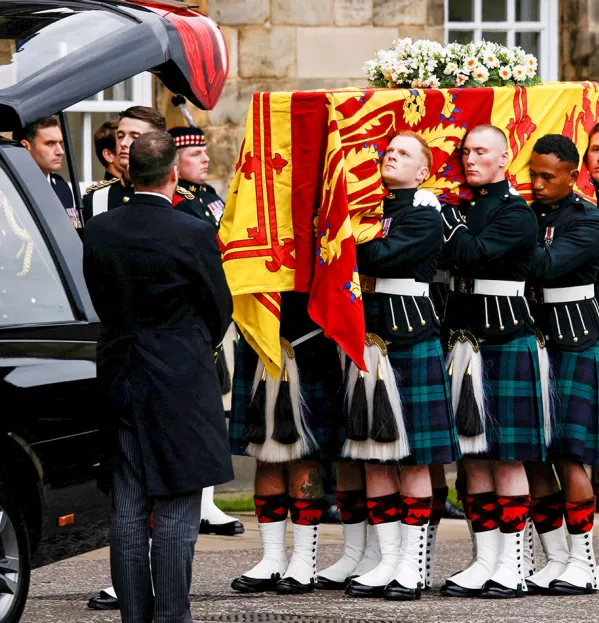The first call I got about the Queen’s death was from my mum. The second came moments later, from my headteacher:
“As I’ll be travelling back with Year 9 from the Ullswater trip, would you please put something together for the rest of the school, for first thing tomorrow morning? I trust you to do it well.”
Vote of confidence aside, those of you who also had to craft the appropriate words to share with students will appreciate that the burden was palpable.
Whatever your views on monarchy, the death of Queen Elizabeth II is one of those moments in history that will be remembered for years to come. I knew that my words, my choice of readings and, most importantly, my tone, could shape students’ interpretations of this huge national event.
Here’s what the experience has taught me about approaching such events in future.
Focus on facts…
One of the dangers of “doing” significant events with students is that the reason an event is significant could be totally opaque to them. Let’s face it: to the student for whom the gap between period 2 and lunch is a long time, talk of epochs seems just too far outside their understanding.
In the days immediately following the death of the Queen, various resources for assemblies were doing the rounds on Twitter. A number focused solely on facts: where the Queen was born; her family; what she did in the war; how long she reigned; top five longest reigns in British history.
This is a safe way in. Focus on facts, and perhaps the significance of the event will speak for itself: “Wow! She reigned for so long!”
…but don’t be too reductive
The danger here is that we put the onus on the children to grasp the big concepts: we tell them the easy part and expect them to do the abstract thinking.
If we focus too much on facts, or if we circumvent the difficult ideas entirely by reducing a historic moment to the personal and particular - we deal with the concepts we know our students will get, like the loss of a loved one, and fail to tackle the bigger picture - we are assuming too little of them.
It’s not that this is totally inappropriate. But if this is all we do, we should not be surprised if a student asks why other people’s grannies don’t deserve such treatment.
We didn’t engage our students in the conceptual element of the event, so we can’t be disappointed when they don’t make that leap themselves.
Help students to crack the concept
An old favourite of RE teachers could help here. Trevor Cooling’s notion of “concept cracking” suggests that no concept is intrinsically too difficult to teach.
What we have to do is meet students halfway in their understanding: consider what’s in their worldview that can be brought into dialogue with the event we’re trying to teach. What do they know already that will enable them to “get it”?
Don’t shut down differing views
As someone who teaches older children, and in a school in which we encourage debate, I am very aware that events such as Remembrance Day, or other commemorations, often seem to demand uncomplicated reverence and respect from students. There are correct ways to behave, and, seemingly, correct things to feel and think, too.
In their studies, on the other hand, my students have been encouraged to handle similar matters more critically. For example, we tackle the question of whether there can be a “just” war.
In history, politics and English, students consider our country’s imperialist past and the reverberations of that still being felt today.
It’s important that we don’t ignore this tension; it should be possible to allow students to have their opinions, while still approaching commemoration with respect.
The key is to show them that we will all sometimes find ourselves having to live with controversy. Once you allow it to be out in the open that there are different views, and some mixed feelings, you can, with your students, reach for the common ground and find the heart of the matter on which the community can find agreement.
Clare Jarmy is assistant head (learning and development) at Bedales School in Hampshire





